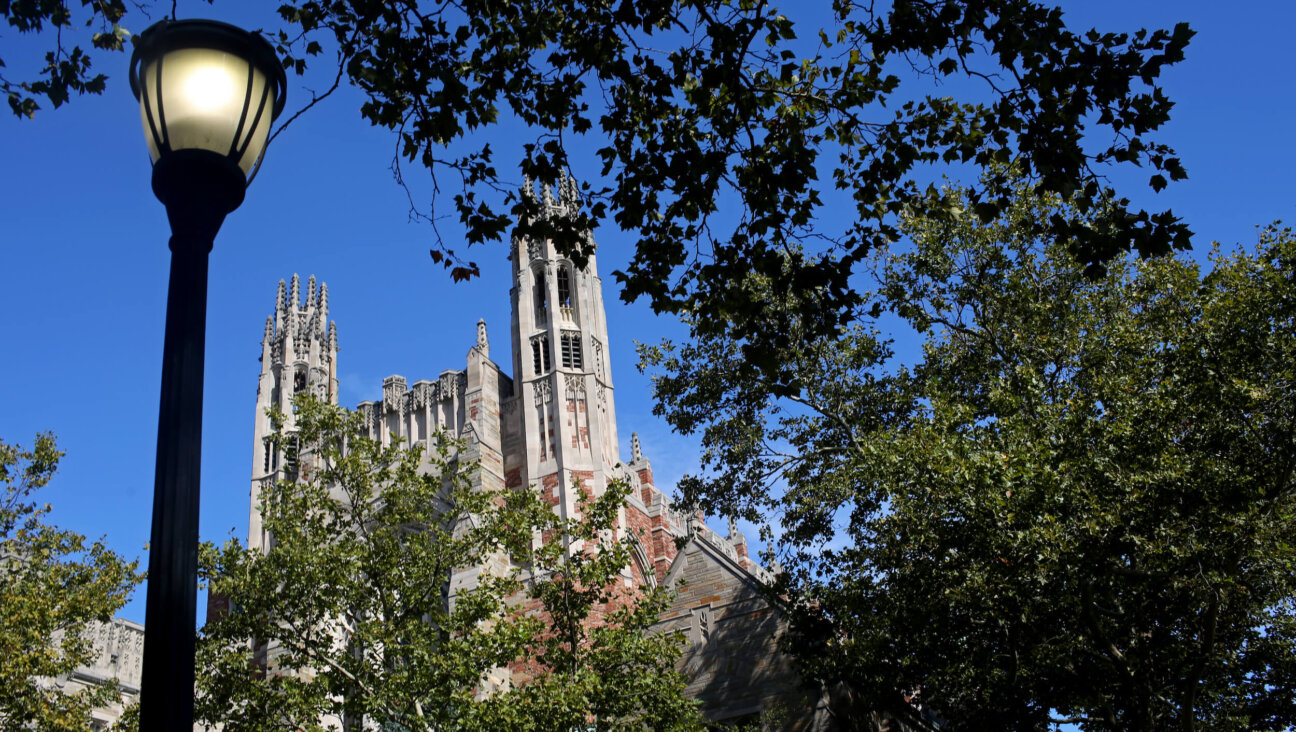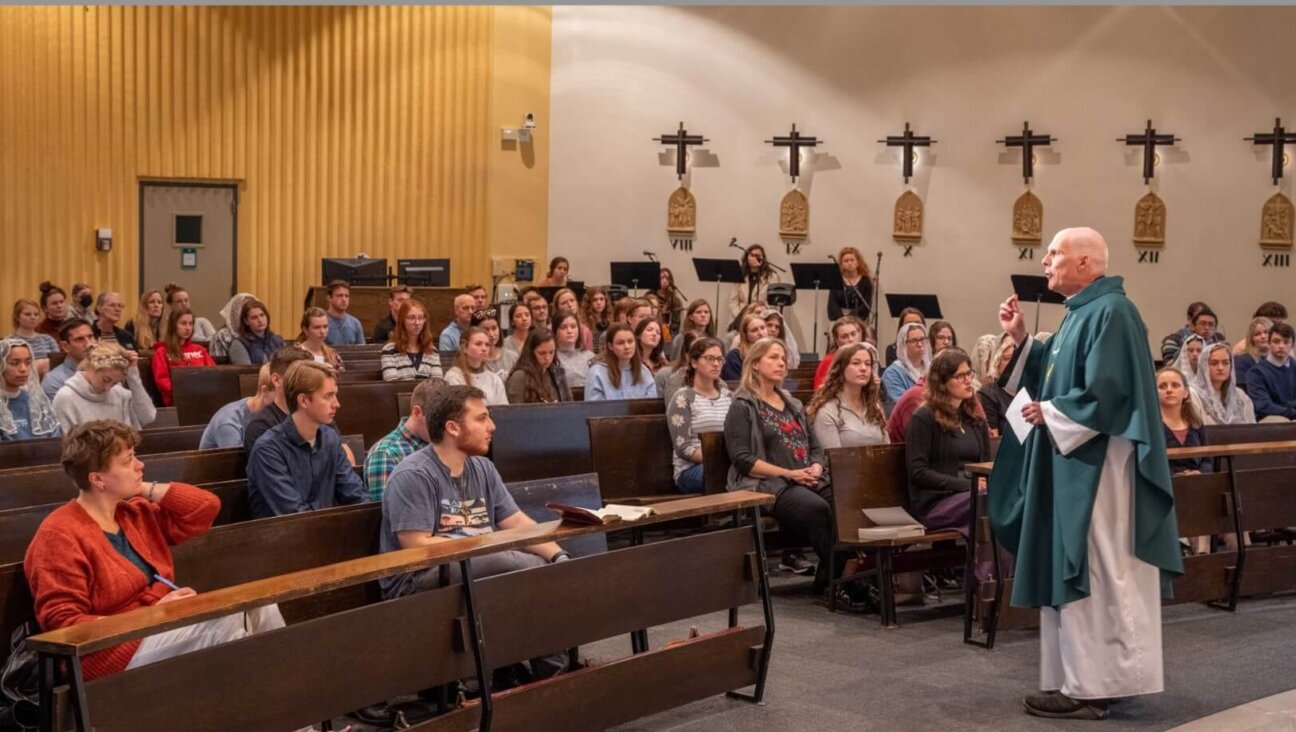To mark George Floyd’s death, rabbi calls for fast inspired by Day of Atonement

A memorial for George Floyd in Minneapolis. Image by Getty
A Pittsburgh rabbi is fasting in mourning for George Floyd — and calling on others to do the same.
Rabbi Jeremy Markiz said that fasting was a way to grapple with systemic racism in America and focus attention on Floyd’s death. “There’s no part of my day that I won’t be thinking about it,” he said.
Markiz is director of Derekh and Youth Tefillah at Pittsburgh’s Congregation Beth Shalom, which hosted worshipers from Tree of Life-Or L’Simcha Congregation after a mass shooting at the synagogue in 2018. Congregation Beth Shalom is not affiliated with the fast.
Markiz planned the fast to occur on the seventh day after Floyd’s death. While he doesn’t know exactly how many people are participating, over 200 people have responded to a Facebook event for the fast, and others have expressed solidarity on Twitter.
However, Markiz acknowledged that fasting is not an end in itself, but rather a precursor to concrete action against racism. On Facebook, he suggested several texts to read during the fast, including Ibram X. Kendi’s “How to be a Racist” and Michelle Alexander’s “The New Jim Crow.” He also named actions to take after the fast’s end, from supporting local black organizations to working for police accountability on the local level.
Markiz said he drew inspiration from the traditional Yom Kippur fast, which is one part of the process of atonement that takes place during the holiday. “It’s only a part of a broader array of actions. It has to be followed by commitment to justice and change,” he said.
Irene Katz Connelly is an editorial fellow at the Forward. You can contact her at [email protected].
























